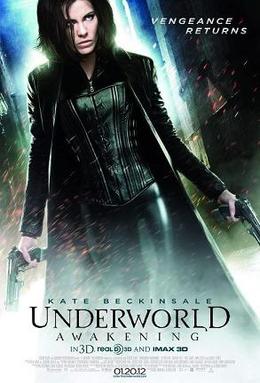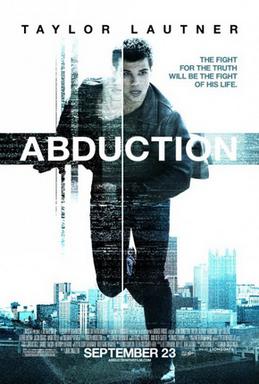While these titles have some similarities (both about a girl suffering mental trauma, who escapes to a mental fantasy world with different elements each time) they might not initially seem the most obvious for a comparison or even something that should be compared. What started me thinking about them together though was the idea of looking at how well each of them would suit the others medium.
I wasn't a fan of Sucker Punch and for the most part it already felt like a video game just without the interaction (so, Dragons Lair then). As a film it had no real intrigue or consequence, it was just scene after scene of computer generated action and/or women in burlesque outfits, set to (admittedly very good) music. There's been plenty of talk back and forth about whether this is a 'feminist' film that empowers women, Zack Snyder certainly wants you to think so but I can't see it myself. I'm pretty sure the biggest group of people who liked this film are those who do just enjoy the dumb action and staring at women wearing revealing clothes, maybe he sees a certain irony in making the most money off those he is trying to mock but it's not like he has the best track record for showing violence towards women. I don't pretend to speak for all women about it as there have been some people who think there is a deeper meaning to it, I just didn't think that it worked very well as a film or do enough to convince the average person that there is more to it.
Sadly though I think it would have got away with much less criticism as a video game, just because I don't think we're really reached the point where serious critical analysis of video games and their themes can take place. I think this is shown by the backlash to a Film Crit Hulk article addressing the way Catwoman was presented in Arkham City, which wasn't even trying to say that the whole game was bad, just that this aspect could have been dealt with better. If Sucker Punch had come out as a game with a mixture of third person fighting, shooting and occasionally flying some vehicles I'm sure it would have sold millions and the plot would have been lauded as complex and original. Maybe a few articles would have appeared down the line questioning its attitudes towards women, only to be shot down by thousands of comments from angry male gamers - especially if it had been a woman who dared to write about it. It's not exactly the biggest of compliments to say that it might have done better as a game for these reasons.
Alice: Madness Returns on the other hand was a game I didn't play for quite a while but gradually heard good things about, some people even calling it their unexpected game of the year. I find it hard to believe that people really loved it as a whole though, I would think that for most people it was the art design and story. Gameplay wise it largely felt pretty dated to me, not feeling as much like a Quake mod as the original did but some of the third person shooting and fighting really didn't mesh together well. The camera was absolutely atrocious if you focus on one enemy for a long time, I found it best to hold the button to lock on and periodically let go to try and sort it out. This of course had to be done by manually wrangling the stick as there's no center camera button, you'll spend a lot of time trying to line up your jumps too. I frequently found myself infuriated by its inconsistent checkpoints, where falling to your 'death' put you back on the most recent platform but dying through combat would put you back much further, often meaning that you had to do the awkward platforming section again. Okay, so your combat deaths shouldn't exactly be frequent, but I had a few on a mini-boss that also gave virtually no hints on how to defeat it, which really soured me towards it.
I feel like I'm being pretty harsh there though, despite the average elements it did keep me coming back to see the story, find more of the memory fragments and see what the new design theme would be in the next chapter. There were a few places where I thought levels overstayed their welcome and got repetitive but mostly there would be something new on the horizon to keep you hooked. So while I've written before about playing games just for the story, this wasn't a 'comfort game' to just sit back and soak up because I felt like every now and then it would poke you in the ribs with a little spike in difficulty, though it did get better as it progressed. Overall it just felt like the core of the game didn't get as much love and attention as the art design. I think that Alice is the more effective title in its own medium though, the gameplay might not be perfect but it's acceptable, we'd be getting into a whole other discussion to try and determine what should be at the core of a film that Sucker Punch is missing.
Would Alice have worked as a film? I guess I would like to see someone try, though it would probably be commercially non-viable to actually make it violent to the degree that the game is (a mini series on HBO perhaps?). A long time ago you might have expected Tim Burton to make a really dark, interesting take on Alice rather than the film he made. I feel that even as a game though, Alice manages to handle a similar story better than Sucker Punch; there's nothing necessarily wrong with the concept of the film but it's executed terribly. I felt like the opening scene in the asylum was trying to be clever but it ends up giving the game away, which immediately makes the rest of the film feel redundant. Alice on the other hand keeps the intrigue up all the way through and just when you think you know what's going on you're hit with a very harsh section that makes you question whether the situation can be resolved at all. You feel the fear and unfairness of the situation and care about the possibility of Alice recovering her sanity. In the end it has a reasonably satisfactory resolution that still leaves room for interpretation about what actually happened. Whereas Sucker Punch finishes with its 'twist' and tries to create some semblance of an ending that wraps everything up but actually just leaves you going "where the f**k did that come from?".






